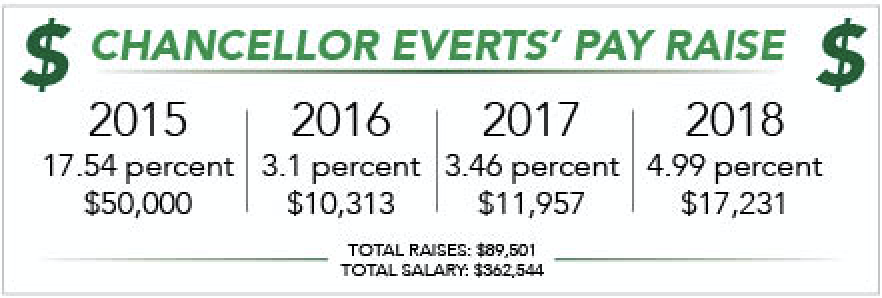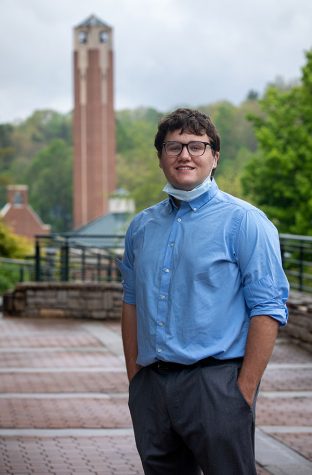At the Nov. 12 Faculty Senate meeting, Leigh Dunston introduced a proposed resolution to require App State faculty to receive a merit-based salary increase in the 2018-2019 fiscal year. The resolution passed with 93 percent of the vote.
Dunston, the resolution sponsor, is the Executive-in-Residence for Finance, Banking and Insurance.
“When it sank in that there was really going to be a zero raise for faculty in a time of such alleged prosperity, it just seemed completely, totally inappropriate to me,” Dunston said.
Faculty were notified in a memo that faculty and non-faculty employees exempt from the State Human Resources Act would not receive raises on Sept. 26. No reason or financial analysis was given, according to the resolution.
The memo said the North Carolina General Assembly appropriated $20 million for UNC systems employee raises. A decision by the UNC System, which was supported by campus chancellors, was made to provide a two percent increase across-the-board to State Human Resources Act employees.
Dunston said he researched if there was any discretionary money from the administration that could go to faculty raises.
“When I concluded that there was and that the decision made at our administration level to say zero, I thought we needed to act,” Dunston said.
Other senators talked about how important pay is to them.
“The only way for my wife and I to live on that single income in Boone is for me to take on additional work,” Michael Behrent, professor in the Department of History, said.
Behrent said he talked about how much he got paid because it is a personal issue for most people.
Ralph Lentz, senior lecturer in the history department who is not part of Faculty Senate, said he makes $39,000 a year after working at App State for 20 years. He had to sell his house recently because he could not afford it anymore.
Behrent also talked about, among other administration officials, Sheri Everts’ pay raises.
The UNC Board of Governors gave pay raises to 11 UNC System chancellors, including Everts. Everts was given a 4.99 percent raise, which is a raise of $17,231, bringing her total yearly salary to $362,544, according to data from the News and Observer.
“The pay raise alone significantly exceeds what my colleagues who are non-tenure track faculty in the history department make,” Behrent said. “I am not saying this is directly Everts’ fault, however, I think she could speak about this. I think she could hand back those pay raises.”
He also said Everts did not pay faculty “the courtesy of coming to this body.” The Faculty Senate guidebook states that meetings with the chancellor shall take place twice a year. Behrent said she was supposed to be at the first and last senate meetings, but has not been there.
Behrent said he is concerned that Everts has not been present.
“Faculty well-being is integral to the well-being of the entire university,” Amanda Lago, Director of Academic Affairs for the Student Government Association and junior anthropology major, said in an email. “I echo the sentiment of faculty senators recognizing administrators for their commitment and dedication to the school.”
One senator introduced an amendment to change the word “require” to “request” in the resolution. It tied in the first vote and then failed on a hand vote.
“I really think that one good thing about this proposal is that it’s totally clear, totally transparent about what it’s trying to do, which is that it will lead the administration to reconsider the allocation of the moneys,” Behrent said.
Story by Moss Brennan
Graphic by Sydney Spann


